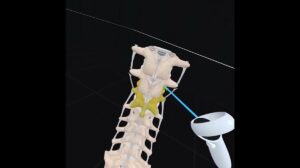NEW YORK (Reuters Health) – Positron emission tomography (PET) of the liver is extremely unreliable in patients who’ve just had chemotherapy for colorectal cancer metastases, because the false-negative rate is very high, according to a study from The University of Texas M.D. Anderson Cancer Center.
“We recommend that physicians not use PET in patients recently completing chemotherapy,” the researchers wrote in the April issue of Archives of Surgery. Instead, patients “should undergo the appropriate oncologic hepatic operation based on the high probability of viable malignant disease.”
Dr. Evan Glazer and his surgical oncology colleagues undertook their study because they were finding “viable cancer in patients with clearly negative findings on PET.”
They analyzed data on 138 patients who underwent PET and conventional imaging studies (computed tomography, magnetic resonance and ultrasonography). All of the patients had “oncologically sound” colon resections.
In all cases, PET was done either before chemotherapy had ended, or within 4 weeks afterward.
Fifteen patients had negative PET scans of their liver – including 13 who did have hepatic lesions. This translated to a false-negative rate of 86.7% and a negative predictive value of 13.3%.
Overall, PET yielded 116 true-positive, 13 false-negative, 7 false-positive, and 2 true-negative results. Its sensitivity was 89.9% and its specificity was 22.2%.
PET detects metabolic activity, and its yields positive results only when metabolic activity is higher than baseline. But “the goal of chemotherapy is to decrease malignant cell metabolic activity, ideally, to zero and induce apoptosis/necrosis and cell death,” the researchers write. “A priori, then, PET would not be expected to yield useful information after an effective chemotherapeutic regimen until malignant cells recovered enough metabolic activity that is greater than the surrounding tissues.”
The authors report the imaging algorithm they are currently using. If more than six weeks have elapsed since chemotherapy, they send patients for CT-PET with reconstructions. If chemotherapy isn’t finished or if it ended less than six weeks ago, they order CT or MRI only, and they compare the results to the patient’s earlier scans.
In a commentary, however, Dr. James Herbert of the University of Vermont College of Medicine argues that more research is needed before a simple addition to the time period can be recommended.
“Why should we trust a negative PET finding 6 weeks after chemotherapy?” he asks, adding, “I would hope that the authors and others will continue to evaluate this in well-managed trials.”
Reference:
Arch Surg 2010;140:340-345.




